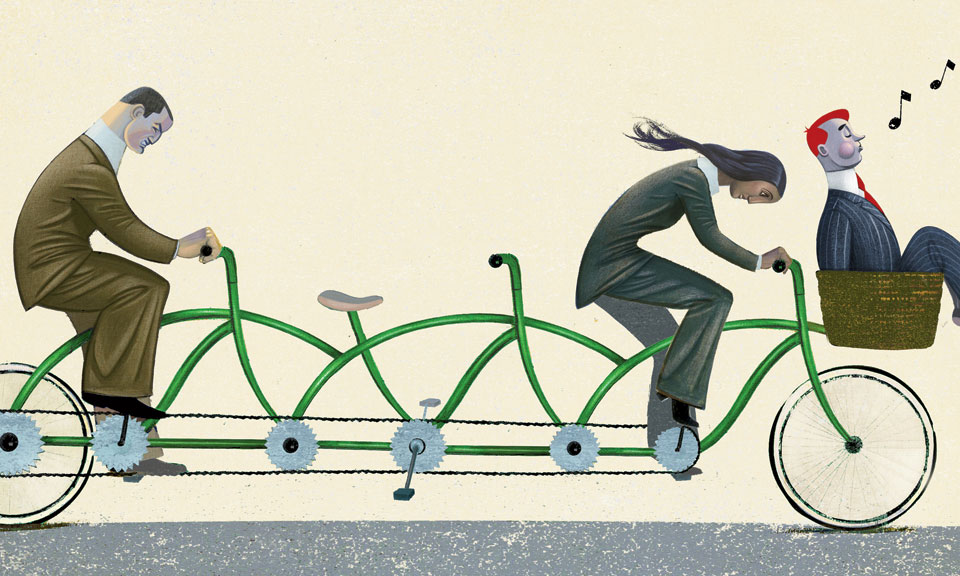I love how in The Choice: A Fable of Free Trade and Protectionism you bring David Ricardo back to life. The only other novel I’ve read that’s done something similar is Saving Adam Smith by Jonathan Wight.
In The Choice, you point out a restaurant meal eaten by a foreign tourist is the same as shipping food abroad, and how our universities are an major export. Why do you think people have a manufacturing fetish? Our manufacturing sector produces more than ever, some $2 trillion, which makes it the 9th largest economy in world. Is it the Materialist fallacy?
If economics has taught me anything it’s that you can’t measure a sector based upon its inputs (jobs), but rather it must be measured based upon its outputs? Also, this line between service and manufacturing seems an outdated false distinction. Toyota might make 9 million cars per year, but try selling a car without services: financing, repairs, warranty, auto dealer inventory financing, etc. We romance the car and ignore these more boring, but vital, services.
We had Donald Boudreaux on the show and we asked him if we should we do away with the trade deficit statistics. He said yes, what do you say?
Segment Three
Just to finish up your discussion with Ed on Rabbi Lapin, I think his problem is the programmers have to decide how a car will react to certain situations—the classic Trolley problem—and because there’s no human judgment at the time of the decision.
Back to your novels. In your book The Invisible Heart: An Economic Romance was perhaps the first time I encountered the argument: what if the government forced you spend 15% of your money with minority-owned or 50% at women-owned businesses, to prove you’re not a racist or sexist? Why is it we only focus on one-side of the transaction—the employer, but not the employee or the customer?
One thing I’ve learned from Gary Becker and Thomas Sowell is the market does impose a cost on people who discriminate, which lessens it.















